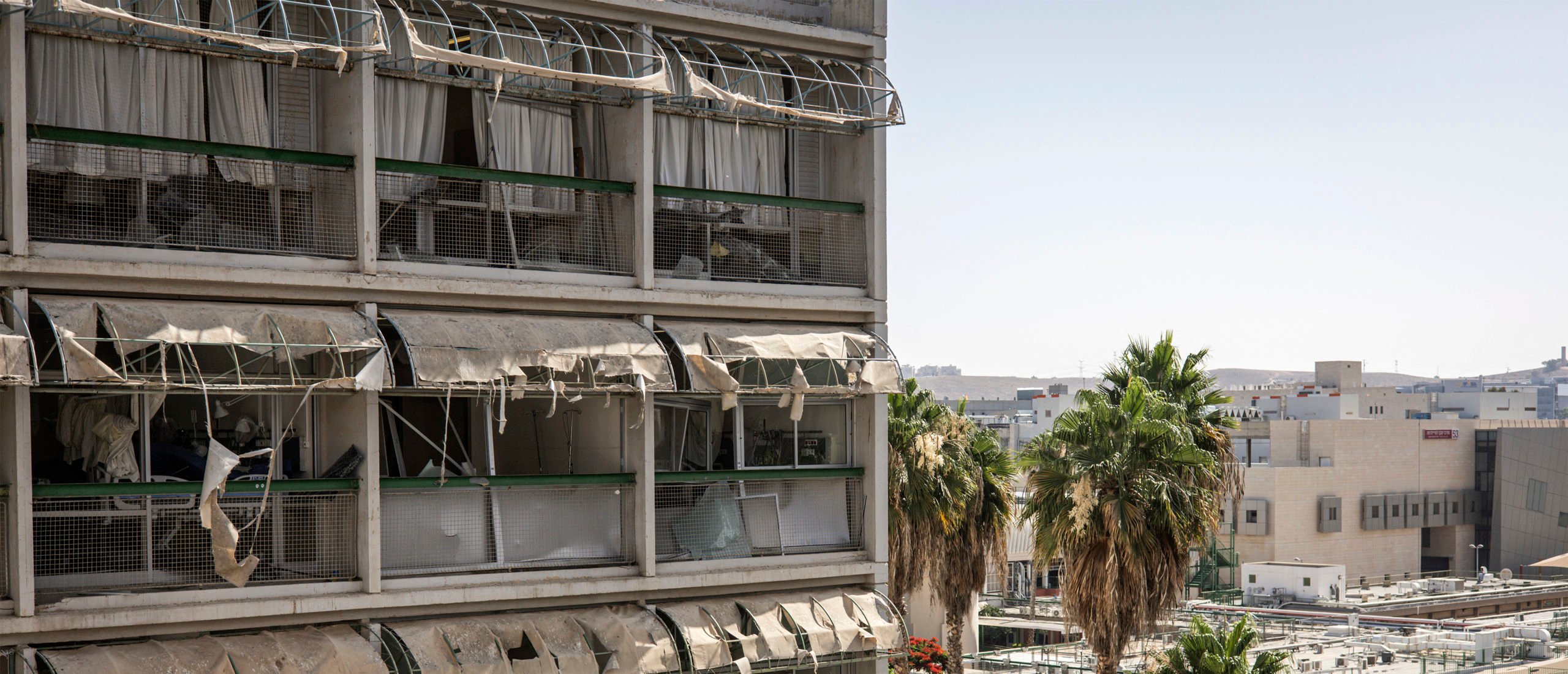Israel is reportedly running low on missile interceptors as Iran continues to deplete its own ballistic missile reserves to attack the Jewish state, potentially leaving Israel in a dilemma if it runs out of defensive munitions before Tehran exhausts its arsenal.
Israel is running out of “Arrow” interceptor missiles, a key defense component that allows the nation to stave off Iranian ballistic missile attacks that the Iron Dome system is not equipped to handle, an unnamed U.S. official told The Wall Street Journal on Wednesday. While Iran is also reportedly burning through its stockpile of roughly 2,000 ballistic missiles, it has recently started reducing the size of its salvos, and the question remains on whether or not Israel’s world-class air defense systems will be able to keep up with the pace of Iranian bombardment.
“That’s really the challenge Israel faces, is it can’t replace the ones it’s burning up as quickly as it’s using them. And this is especially true of the more advanced systems that Israel is using to intercept Iran’s ballistic missiles,” Jennifer Kavanagh, director of military analysis at Defense Priorities, told the Daily Caller News Foundation. “Intercepting ballistic missiles is just incredibly difficult because of their trajectory and speed. So I think that’s the biggest concern.” (RELATED: Trump To Make Decision On Direct Involvement In Israel-Iran War Within Two Weeks)

Destroyed hospital rooms are pictured at a building at Soroka Hospital following an Iranian missile attack in Beersheba in southern Israel on June 19, 2025. (Photo by JOHN WESSELS/AFP via Getty Images)
Israel’s “Iron Dome” defense system is primarily designed to intercept less advanced rockets, primarily fired by Hamas and other terrorist groups from the Gaza Strip. To defend against incoming ballistic missiles, which arrive on target at much higher velocities with unpredictable vectors, Israel employs both the Arrow system and “David’s Sling,” which is designed for medium range ballistic missiles.
Additionally, Israel uses the Terminal High-Altitude Area Defense (THAAD) system for intercepting ballistic missiles in the terminal phase of flight, the hardest point at which to shoot down a projectile.
The exact number of interceptors Israel possesses is not publicly known. Some Israeli officials are reportedly concerned about their supply levels for the interceptors, hoping for a quick end to the war to avoid a situation in which they run out before Tehran uses up all of its missiles, The New York Times reported Wednesday.
Currently, the U.S. forces stationed near Israel are helping to intercept Iranian ballistic missiles. It is unclear how many U.S. anti-missile assets have been deployed to counteract Iranian attacks.
“They are not inexhaustible,” Kavanagh told the DCNF, referring to Israel’s supply of defensive munitions. “Now, obviously Israel has the advantage that it can also rely on help from the United States, but it’s not clear that U.S. support can replace all of Israel’s indigenous systems, or that there’s a plan to do that.”
The U.S. has reportedly been aware of Israel’s missile defense problem for months, and the issue has been part of the reason for U.S. involvement in Israel’s defense, the unnamed U.S. official told the WSJ.
Currently, President Donald Trump is deciding whether or not to join in offensive operations against Iran, giving a two-week timeline to make his decision on Thursday, White House Press Secretary Karoline Leavitt told reporters Thursday.
“It’s possible that at some point, it could be primarily U.S. defense that’s supporting the protection of Israel’s airspace,” Kavanagh told the DCNF. “I think the hope is that Iran runs out of missiles before then, but it’s possible that Israeli stocks will become so low that the balance shifts.”
The Pentagon and the Israel Defense Forces did not respond to the DCNF’s request for comment.
All content created by the Daily Caller News Foundation, an independent and nonpartisan newswire service, is available without charge to any legitimate news publisher that can provide a large audience. All republished articles must include our logo, our reporter’s byline and their DCNF affiliation. For any questions about our guidelines or partnering with us, please contact licensing@dailycallernewsfoundation.org.


![Pentagon Begins Booting Trans Troops After Supreme Court Greenlights Ban [WATCH]](https://www.right2024.com/wp-content/uploads/2025/05/Pentagon-Begins-Booting-Trans-Troops-After-Supreme-Court-Greenlights-Ban-350x250.jpg)


![Trump Posts Hilarious Pope Meme, Leftists Immediately Melt Down [WATCH]](https://www.right2024.com/wp-content/uploads/2025/05/Trump-Posts-Hilarious-Pope-Meme-Leftists-Immediately-Melt-Down-WATCH-350x250.jpg)





![Soros Network, Others Behind LA Riots [WATCH]](https://www.right2024.com/wp-content/uploads/2025/06/Soros-Network-Others-Behind-LA-Riots-WATCH-350x250.jpg)





